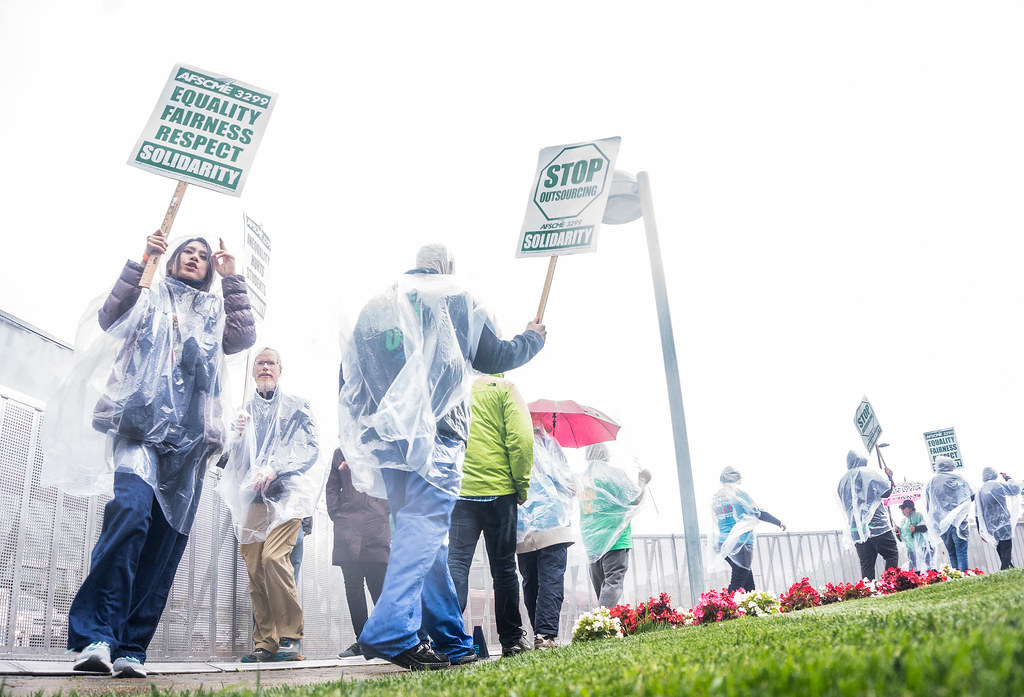A review of Federal Reserve Chair Jerome Powell’s official calendars show that the only non-governmental individuals with whom he’s held private meetings during the Biden presidency are either Wall Street executives or employees of non-profits funded by the financial industry. He has held no meetings with any organized labor representatives, unlike Janet Yellen during her tenure as Fed Chair. The calendars reviewed cover a span of 11 months, from November 2020 through September 2021.
In total, Powell held private meetings with 26 individuals who do not now and never have worked for any American or foreign government entity. Of these individuals, 21 are CEOs or executives in the financial industry, while the remaining five work for think tanks funded heavily by the financial industry.
A chart of the non-governmental or former governmental individuals with whom Powell held private meetings is below.
| Date | Meeting |
| 11/9/20 | Ana Botin, Executive Chair, Santander Group |
| 11/13/20 | Douglas Elliott, Partner, Oliver Wyman |
| 11/20/20 | Larry Fink, CEO, BlackRock |
| 1/7/21 | Tom Wipf, Vice Chairman, Morgan Stanley |
| 2/5/21 | Larry Fink, CEO, BlackRock |
| 2/9/21 | Jamie Dimon, CEO, JPMorgan Chase |
| 3/1/21 | Larry Fink, CEO, BlackRock |
| 3/3/21 | Tim Adams, President, Institute of International Finance |
| 3/25/21 | Tom Wipf, Vice Chairman, Morgan Stanley |
| 4/12/21 | Ana Botin, Executive Chair, Santander Group |
| 4/12/21 | David Rubenstein, Co-Founder and Co-Chairman, Carlyle Group |
| 4/15/21 | Jamie Dimon, CEO, JPMorgan Chase |
| 4/15/21 | Ron O’Hanley, State Street |
| 5/10/21 | Tom Wipf, Vice Chairman, Morgan Stanley |
| 5/11/21 | Brian Armstrong, CEO, Coinbase, and Paul Ryan, Former Speaker of the House |
| 5/12/21 | Justin Muzinich, Fellow, Council on Foreign Relations |
| 5/21/21 | Jamie Dimon, CEO, JPMorgan Chase |
| 6/1/21 | Tim Adams, President, Institute of International Finance |
| 6/1/21 | Greg Baer, President, Bank Policy Institute |
| 6/2/21 | American Bankers Association Economic Advisory Committee |
| 7/7/21 | Shai Akabas, Director of Econ Policy, Bipartisan Policy Center |
| 7/16/21 | Jes Staley, CEO, Barclays |
| 8/16/21 | Mortgage Bankers Association Leadership |
| 9/9/21 | Larry Fink, CEO, BlackRock |
| 9/30/21 | Jamie Dimon, CEO, JPMorgan Chase |
BlackRock CEO Larry Fink and JPMorgan Chase CEO Jamie Dimon tied for the most meetings with Powell over the course of the 11 months, with four private meetings each. BlackRock notably managed much of the Fed’s purchases as part of its Covid-19 response. Morgan Stanley Vice Chairman Tom Wipf had three meetings with Powell, one of which was in Wipf’s capacity as a member of the Alternative Reference Rates Committee, a private-sector panel convened by the Fed to advise on the LIBOR transition. Santander Group executive chair Ana Botin held two meetings with Powell.
Powell did not meet with any non-governmental individuals who are not members of or aligned with the financial industry. This stands in stark contrast to Powell’s predecessor, Janet Yellen, who is now the Secretary of the Treasury. Yellen met with AFL-CIO representatives twice in 2014, once in 2015, and had a private meeting with the late AFL-CIO President Richard Trumka in 2016.
Powell’s supporters have often characterized him as an ally of labor due to his support for low interest rates as Chair. The Revolving Door Project has argued that his dovishness reflects more of a political calculation than an ideological investment in working people, and a likelier ideological explanation would be that the private equity industry, from which Powell emerges, benefits more than the rest of Wall Street from low interest rates.
Powell’s old private equity boss, David Rubenstein, also had one private meeting with the Chair on April 12, likely in preparation for Powell’s appearance at the Economic Club of Washington, D.C. later that month. Rubenstein runs the Economic Club, where he conducts widely-publicized interviews with government and business officials. The Carlyle Group’s primary business strategy, from the time of Powell’s involvement at the firm to today, has been to lean on its network of contacts within the federal government to get preferable bidding terms and federal contracts.
This analysis excludes private meetings Powell had with any individual who currently or previously worked in economic policy for the United States or any other government. That includes individuals who have gone from promoting an industry’s interests while in government to lobbying or influencing government on behalf of that industry — individuals said to have gone through the revolving door.
Powell did meet with several such revolvers, including two meetings with former Commodity Futures Trading Commission Chair Chris Giancarlo. Giancarlo earned the nickname “crypto dad” for his crypto-favorable policies at the CFTC, and now works for the Digital Dollar Project, which is partly funded by Accenture. Powell’s meetings with Giancarlo took place on May 12 and 13, following a private meeting on May 11 with Coinbase CEO Brian Armstrong. Armstrong was joined at the meeting by former Speaker of the House Paul Ryan, who himself spoke privately with Powell the day before on May 10.
As President Biden narrows in on his final selection of a Federal Reserve Chair, it is worth noting which of the finalists appears most aligned with his vision to be “the most pro-union president in history.” There is no evidence that Powell has bothered soliciting the labor movement’s views on his work.
PHOTO CREDIT: “UC San Diego Labor Strike” by triton.news is licensed underCC BY-NC-SA 2.0

